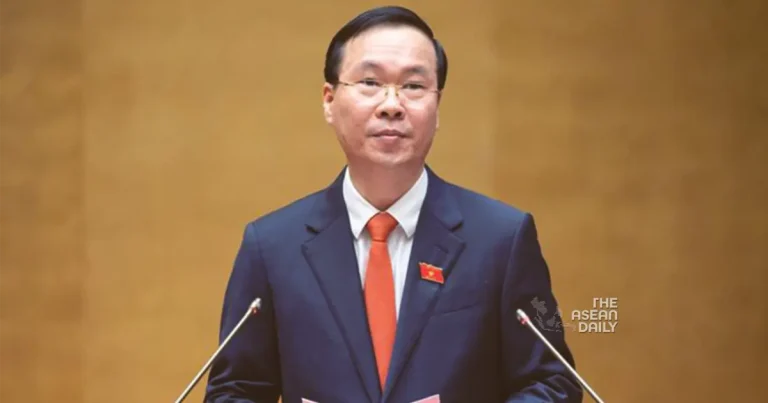20-3-2024 (HANOI) The Vietnamese Communist Party, in a move signalling potential political upheaval with ramifications for foreign investors, announced on Wednesday (Mar 20) the resignation of President Vo Van Thuong, citing “shortcomings”, according to a government statement.
The statement highlighted that Thuong had breached party regulations, with these “shortcomings” adversely affecting public perception and tarnishing the reputation of both the party and the state.
Thuong’s resignation, barely a year following his election, was approved by the Central Party Committee, a pivotal decision-making body within Vietnam’s Communist Party-led governance structure.
While the president’s role is predominantly ceremonial, it remains one of the top four political positions in this Southeast Asian nation.
The committee’s decision preceded an extraordinary session of Vietnam’s parliament slated for Thursday, during which deputies are anticipated to endorse the party’s resolutions.
Recent significant shifts in leadership within the one-party system have been associated with the expansive “blazing furnace” anti-corruption campaign, ostensibly targeting endemic corruption but also subject to scrutiny as a mechanism for political maneuvering.
The 53-year-old Thuong’s resignation closely followed the announcement by Vietnamese authorities of the arrest of a former Quang Ngai province chief, implicated in corruption dating back a decade, during Thuong’s tenure as party chief in the region.
Thuong, widely perceived as an ally of General Secretary Nguyen Phu Trong – Vietnam’s paramount leader and principal architect of the anti-corruption crusade – stepped down amid these developments.
In the aftermath of former president Nguyen Xuan Phuc’s resignation last year due to alleged “violations and misconduct” among officials under his purview, it took six weeks for lawmakers to appoint Thuong as his successor.
While the current political turmoil may potentially be resolved expediently through the election of a new president, concerns persist that frequent reshufflings of top leadership could dampen business confidence in a nation heavily reliant on foreign investment.
The Ho Chi Minh City stock exchange, Vietnam’s primary stock market, experienced a nearly 3 per cent decline in trading within hours of reports circulating about the impending presidential resignation.
Foreign investors registered net sales of approximately US$80 million in the initial two days of the week, as reported by Mirae Asset Securities, a brokerage firm.
A Vietnam-based advisor to international corporations remarked that Thuong’s ousting might lead to further delays in policy formulation and administrative decision-making, owing to heightened concerns among officials regarding the trajectory of the anti-corruption drive. However, they noted that Vietnam’s stance on fundamental policies would likely remain unchanged.




